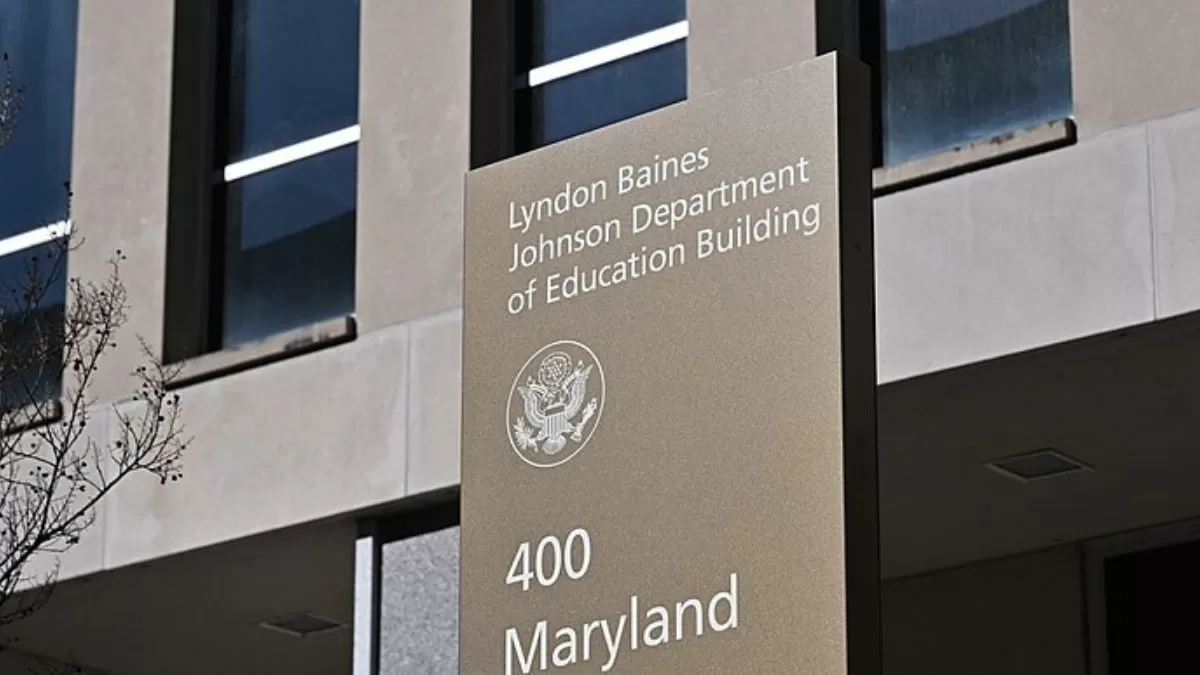The U.S. Department of Education, under the leadership of President Trump, has recently made a bold statement regarding race-based decisions in education. According to the department, any form of diversity, equity, and inclusion (DEI) initiatives in schools and universities is considered a violation of civil rights and could result in the loss of federal funding.
This announcement has sparked a heated debate among educators, policymakers, and the general public. While some argue that DEI is essential for creating a more inclusive and equitable education system, others believe that it goes against the principles of equal opportunity and merit-based admissions.
The Trump administration’s stance on DEI is not surprising, given the President’s previous statements and actions on race-related issues. However, it is crucial to understand the potential consequences of this decision and its impact on the future of education in America.
First and foremost, it is essential to acknowledge that diversity, equity, and inclusion are not just buzzwords or political agendas. They are fundamental values that promote a fair and just society. In the context of education, DEI initiatives aim to create a learning environment where students from all backgrounds feel valued, respected, and supported.
By rejecting DEI, the Trump administration is essentially denying the existence of systemic racism and discrimination in our education system. It is turning a blind eye to the fact that students of color, especially Black and Hispanic students, face numerous barriers to academic success, including unequal access to resources and opportunities.
Moreover, DEI initiatives are not just about race. They also address other forms of discrimination, such as gender, sexual orientation, and disability. By disregarding these issues, the Department of Education is sending a dangerous message that these marginalized groups do not matter and their voices are not heard.
Furthermore, the decision to label DEI as a civil rights violation is a direct attack on the progress made in the past decades towards creating a more diverse and inclusive society. It undermines the efforts of civil rights activists and educators who have been working tirelessly to break down barriers and promote equal opportunities for all.
The Trump administration’s argument that DEI goes against the principles of equal opportunity and merit-based admissions is also flawed. In fact, DEI initiatives aim to level the playing field and provide equal opportunities for students from underrepresented groups. It is not about giving anyone an unfair advantage but rather about creating a fair and inclusive system where everyone has an equal chance to succeed.
Moreover, the idea of merit-based admissions is often used as a cover for perpetuating systemic racism and discrimination. It assumes that all students have the same starting point and equal access to resources, which is far from the truth. By ignoring the systemic barriers faced by marginalized students, the Trump administration is perpetuating the cycle of inequality and hindering progress towards a more equitable society.
The decision to cut federal funding for schools and universities that implement DEI initiatives will have severe consequences. It will not only limit the resources available for these institutions but also discourage them from promoting diversity and inclusion. This could lead to a homogenous and segregated education system, which goes against the values of a democratic society.
In conclusion, the U.S. Department of Education’s stance on DEI is a step in the wrong direction. By rejecting diversity, equity, and inclusion, the Trump administration is denying the existence of systemic racism and discrimination in our education system. It is also hindering progress towards creating a more inclusive and equitable society. As educators, it is our responsibility to continue promoting DEI initiatives and fighting for a fair and just education system for all students.

